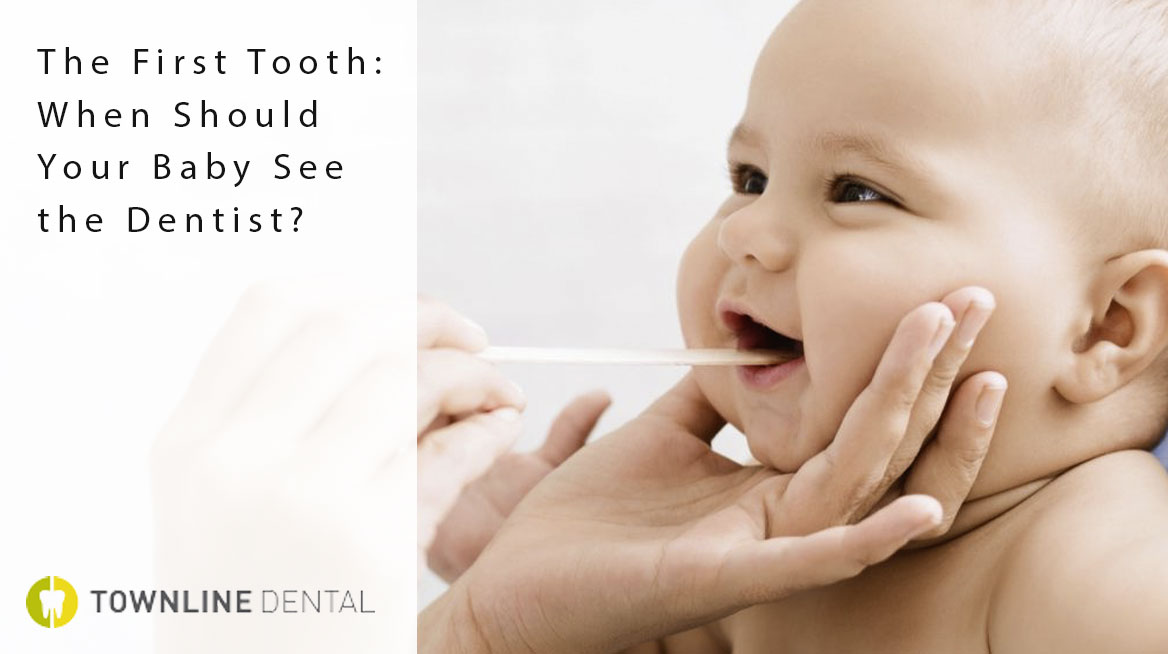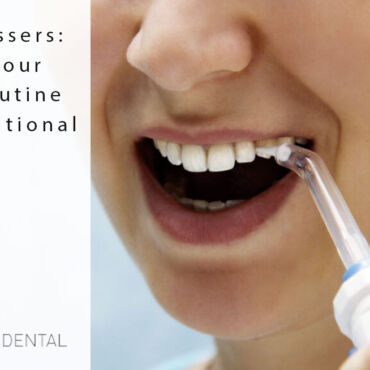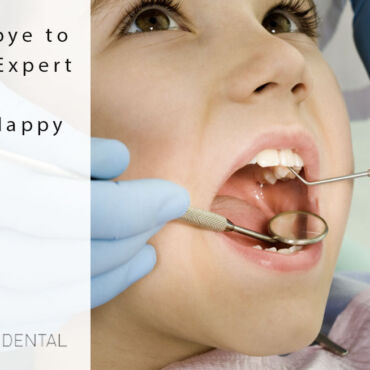Importance of early dental care for babies
Starting dental care for babies earlier than you might think is essential for their oral health. Even though your baby may only have a few teeth, early dental visits are crucial. Here’s why:
- Preventive care: Early visits help the dentist spot any dental issues early, like tooth decay or gum problems. Treating problems early can prevent them from getting worse.
- Building good habits: The first dental visit teaches you how to care for your baby’s teeth and gums. You’ll learn cleaning techniques and how to prevent cavities, setting the stage for healthy teeth.
- Getting used to the dentist: Taking your baby to the dentist early helps them get used to the dental office. This makes future visits less scary.
Signs that your baby may need to see a dentist earlier
While the general recommendation is to schedule a baby’s first dental visit around their first birthday, there are some signs that might indicate a need for an earlier appointment. It’s crucial to be aware of these signs and seek advice from a dentist if you notice any of the following:
- Tooth discolouration: Unusual discolouration on your baby’s teeth, like white, brown, or black spots, could signal tooth decay or other dental issues. Getting their teeth checked by a dentist can help identify the cause and provide appropriate treatment if needed.
- Persistent bad breath: Consistent bad breath in babies might indicate underlying dental problems such as tooth decay or gum disease. If your baby’s breath constantly smells unpleasant, it’s wise to have them examined by a dentist.
- Difficulty eating or chewing: Trouble eating or chewing could be a sign of dental pain or discomfort. While some discomfort during teething is normal, persistent issues or accompanying symptoms should be evaluated by a dentist.
- Unusual gum swelling or bleeding: Swollen or bleeding gums in babies may suggest gum disease or other oral health issues. While mild inflammation during teething is common, ongoing or severe swelling and bleeding should be assessed by a dentist.
When should your baby see the dentist for the first time?
Scheduling your baby’s first dental visit by their first birthday is advisable. Despite seeming early, it’s instrumental in monitoring oral development, offering parents guidance on oral care, and fostering trust between the dentist and your child.
What to expect during your baby’s first dental visit
Your baby’s first dental visit might feel overwhelming, but knowing what to expect can help ease any concerns. Here’s a breakdown of what typically happens:
- Introduction and discussion: The dentist and staff will greet you and your baby warmly. They’ll ask about your baby’s medical history, any worries you have, and their oral hygiene routine.
- Mouth examination: The dentist will gently check your baby’s teeth and gums for any issues like decay or abnormalities. They’ll also look at the jaw and bite to ensure proper development.
- Cleaning and fluoride: Depending on your baby’s oral health, the dentist may clean their teeth and apply fluoride to strengthen them and protect against cavities.
- Oral care advice: You’ll receive guidance on how to clean your baby’s teeth and gums at home. They might show you brushing techniques, suggest toothpaste, and discuss oral care practices tailored to your baby.
- Q&A session: This is your chance to ask any questions or share concerns you have about your baby’s oral health. The dentist will provide answers and support to help you feel confident in caring for your baby’s teeth.
- Future appointments: Before leaving, you’ll schedule your baby’s next visit. Typically, check-ups every six months are recommended, but it may vary based on your baby’s needs.
Preparing your baby for their first dental visit
Getting your baby ready for their first dental visit can make the experience smoother and more positive for both of you. Here are some tips to help you prepare:
- Start early: Introduce your baby to dental care early on by gently cleaning their gums with a soft cloth or infant toothbrush. This helps them get used to the sensation and prepares them for future dental care.
- Choose the right time: Schedule the dental visit when your baby is well-rested and in a good mood. Avoid times when they’re likely to be hungry or fussy, such as during naptime.
- Read books or watch videos: Use children’s books or videos to introduce the idea of visiting the dentist in a fun way. This can help ease any fears or anxieties your baby may have.
- Play pretend: Role-play a dental visit at home to make it more familiar. Take turns pretending to be the dentist and the patient, using a toothbrush to “clean” your baby’s teeth.
- Stay calm and positive: Your baby can sense your emotions, so stay calm and positive during the visit. Speak to them in a reassuring tone and praise them for their cooperation.
- Bring comfort items: Bring along your baby’s favourite toy or blanket to provide comfort during the appointment.
Conclusion
Your baby’s first tooth is a significant milestone, beginning their dental journey. Early dental visits are crucial for preventing issues and getting your child comfortable with the dentist. By prioritizing oral health early, you set the foundation for lifelong dental wellness. Regular dental check-ups are vital for maintaining good hygiene habits. Schedule your baby’s first dental appointment today with Townline Dental at 604-744-1513 – their smile will be grateful!


